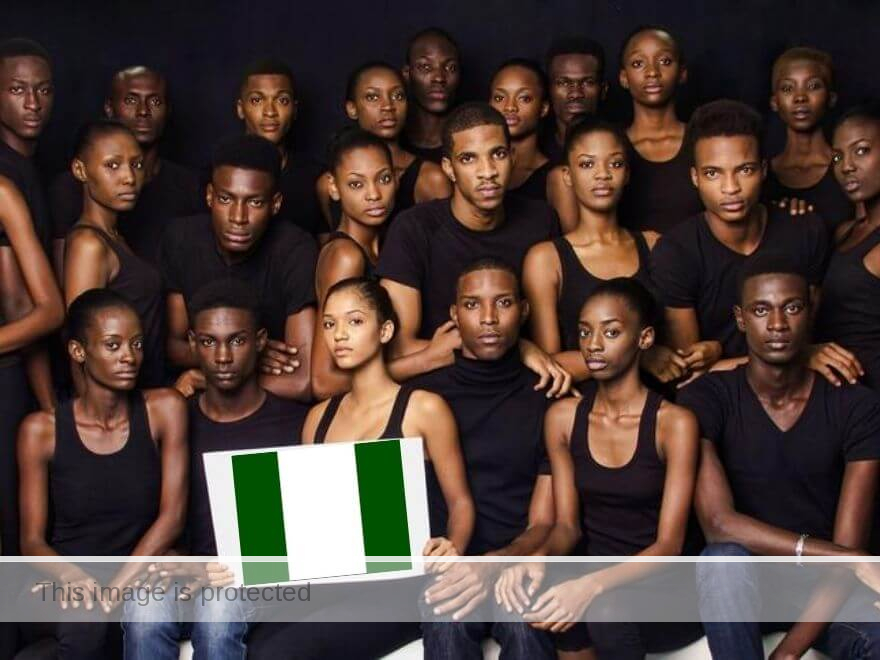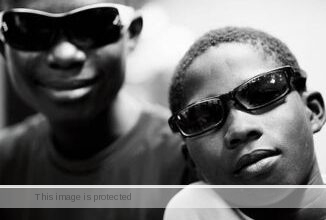36 States and Capital in Nigeria (Slogans + Current Governors)
The Federal Republic of Nigeria is a country in Western Africa made up of 36 states and capital.
- 356,669 square miles (923,768 sq km).
- Population is 219 million (2024 estimation).
- Naira is the currency.
- Its capital is Abuja.
- Asiwaju Bola Ahmed Tinubu is the current President.
- Kashim Shettima Mustapha is the current Vice President.
About Nigeria
There are over 250 ethnic groups in Nigeria, including the Hausa, Fulani, Yoruba, and Igbo.
The official language of Nigeria is English.
Christianity (Protestant, other Christians, Roman Catholic), Islam, and traditional beliefs are the major religions.
Nigeria comprises plateaus and lowlands, which are major river basins fed primarily by the Niger River.
It has a developing mixed economy based primarily on petroleum production and agriculture, with manufacturing becoming increasingly important.
Over two-fifths of the workforce is employed in services, trade, and transportation.
Nigeria is a federal republic with two legislative bodies.
The president serves as the country’s head of state and government.
Nigeria is surrounded by Benin to the west, Chad and Cameroon to the east, the Gulf of Guinea to the south, and Niger to the north.
In terms of administration, Nigeria is divided into six geopolitical zones, each of which is centered in Abuja, the Federal Capital Territory (FCT), and contains at least six states.
According to the Federal Republic of Nigeria’s Constitution, each of Nigeria’s 36 states is a political entity with a limited amount of autonomy that cooperates with the federal government.
Each state has a unique political structure and constitution.
Although the Federal Capital Territory (FCT) isn’t a state, it is run by elected officials who are subject to federal oversight.
Each state in Nigeria is divided into Local Government Areas (LGAs).
There are 774 Local Government Areas (LGAs) in Nigeria presently.
The Constitution states that the 36 states are co-equal but not supreme because the Federal Government has jurisdiction over those areas.
In this article, we list every single state and capital in Nigeria, along with their corresponding slogans and governors.
36 States in Nigeria in Alphabetical Order
Here are the 36 states in Nigeria arranged alphabetically:
- Abia
- Adamawa
- Akwa Ibom
- Anambra
- Bauchi
- Bayelsa
- Benue
- Borno
- Cross River
- Delta
- Ebonyi
- Edo
- Ekiti
- Enugu
- Gombe
- Imo
- Jigawa
- Kaduna
- Kano
- Katsina
- Kebbi
- Kogi
- Kwara
- Lagos
- Nasarawa
- Niger
- Ogun
- Ondo
- Osun
- Oyo
- Plateau
- Rivers
- Sokoto
- Taraba
- Yobe
- Zamfara
- Federal Capital Territory
36 States and Capital in Nigeria
Here are the 36 states and capitals in Nigeria.
| S/N | State | Capital |
| 1 | Abia | Umuahia |
| 2 | Adamawa | Yola |
| 3 | Akwa Ibom | Uyo |
| 4 | Anambra | Awka |
| 5 | Bauchi | Bauchi |
| 6 | Bayelsa | Yenagoa |
| 7 | Benue | Makurdi |
| 8 | Borno | Maiduguri |
| 9 | Cross River | Calabar |
| 10 | Delta | Asaba |
| 11 | Ebonyi | Abakaliki |
| 12 | Edo | Benin City |
| 13 | Ekiti | Ado – Ekiti |
| 14 | Enugu | Enugu |
| 15 | Gombe | Gombe |
| 16 | Imo | Owerri |
| 17 | Jigawa | Dutse |
| 18 | Kaduna | Kaduna |
| 19 | Kano | Kano |
| 20 | Katsina | Katsina |
| 21 | Kebbi | Birnin Kebbi |
| 22 | Kogi | Lokoja |
| 23 | Kwara | Ilorin |
| 24 | Lagos | Ikeja |
| 25 | Nasarawa | Lafia |
| 26 | Niger | Minna |
| 27 | Ogun | Abeokuta |
| 28 | Ondo | Akure |
| 29 | Osun | Oshogbo |
| 30 | Oyo | Ibadan |
| 31 | Plateau | Jos |
| 32 | Rivers | Port Harcourt |
| 33 | Sokoto | Sokoto |
| 34 | Taraba | Jalingo |
| 35 | Yobe | Damaturu |
| 36 | Zamfara | Gusau |
36 States in Nigeria and their Slogans
These are the 36 states in Nigeria with their slogans.
| S/N | State | Capital | Slogan |
| 1 | Abia | Umuahia | God’s Own State |
| 2 | Adamawa | Yola | Land of Beauty |
| 3 | Akwa Ibom | Uyo | Land of Promise |
| 4 | Anambra | Awka | Light of the Nation |
| 5 | Bauchi | Bauchi | Pearl of Tourism |
| 6 | Bayelsa | Yenagoa | Glory of all Lands |
| 7 | Benue | Makurdi | Food Basket of the Nation |
| 8 | Borno | Maiduguri | Home of Peace |
| 9 | Cross River | Calabar | The People’s Paradise |
| 10 | Delta | Asaba | The Big Heart |
| 11 | Ebonyi | Abakaliki | Salt of the Nation |
| 12 | Edo | Benin City | Heartbeat of The Nation |
| 13 | Ekiti | Ado – Ekiti | Land of Honour and Integrity |
| 14 | Enugu | Enugu | Coal City State |
| 15 | Gombe | Gombe | Jewel in the Savannah |
| 16 | Imo | Owerri | Eastern Heartland |
| 17 | Jigawa | Dutse | The New World |
| 18 | Kaduna | Kaduna | Centre of Learning |
| 19 | Kano | Kano | Centre of Commerce |
| 20 | Katsina | Katsina | Home of Hospitality |
| 21 | Kebbi | Birnin Kebbi | Land of Equity |
| 22 | Kogi | Lokoja | The Confluence State |
| 23 | Kwara | Ilorin | State of Harmony |
| 24 | Lagos | Ikeja | Centre of Excellence |
| 25 | Nasarawa | Lafia | Home of Solid Minerals |
| 26 | Niger | Minna | The Power State |
| 27 | Ogun | Abeokuta | Gateway State |
| 28 | Ondo | Akure | Sunshine State |
| 29 | Osun | Oshogbo | Land of Virtue |
| 30 | Oyo | Ibadan | Pace Setter State |
| 31 | Plateau | Jos | Home of Peace and Tourism |
| 32 | Rivers | Port Harcourt | Treasure Base of the Nation |
| 33 | Sokoto | Sokoto | Seat of the Caliphate |
| 34 | Taraba | Jalingo | Nature’s Gift to the Nation |
| 35 | Yobe | Damaturu | Pride of the Sahel |
| 36 | Zamfara | Gusau | Farming is Our Pride |
| 37 | Federal Capital Territory | Abuja | Centre of Unity |
36 States Governors in Nigeria
Here’s a table showing the names of the current state governors in Nigeria.
| S/N | State | Capital | Current Governor |
| 1 | Abia | Umuahia | Alex Otti |
| 2 | Adamawa | Yola | Ahmadu Umaru Fintiri |
| 3 | Akwa Ibom | Uyo | Umo Eno |
| 4 | Anambra | Awka | Charles Soludo |
| 5 | Bauchi | Bauchi | Bala Mohammed |
| 6 | Bayelsa | Yenagoa | Douye Diri |
| 7 | Benue | Makurdi | Hyacinth Alia |
| 8 | Borno | Maiduguri | Babagana Umara Zulum |
| 9 | Cross River | Calabar | Bassey Otu |
| 10 | Delta | Asaba | Sheriff Oborevwori |
| 11 | Ebonyi | Abakaliki | Francis Nwifuru |
| 12 | Edo | Benin City | Godwin Obaseki |
| 13 | Ekiti | Ado – Ekiti | Biodun Oyebanji |
| 14 | Enugu | Enugu | Peter Mbah |
| 15 | Gombe | Gombe | Muhammad Inuwa Yahaya |
| 16 | Imo | Owerri | Hope Uzodinma |
| 17 | Jigawa | Dutse | Umar Namadi |
| 18 | Kaduna | Kaduna | Uba Sani |
| 19 | Kano | Kano | Abba Kabir |
| 20 | Katsina | Katsina | Dikko Radda |
| 21 | Kebbi | Birnin Kebbi | Nasiru Idris |
| 22 | Kogi | Lokoja | Yahaya Bello |
| 23 | Kwara | Ilorin | AbdulRahman AbdulRazaq |
| 24 | Lagos | Ikeja | Babajide Sanwo-Olu |
| 25 | Nasarawa | Lafia | Abdullahi Sule |
| 26 | Niger | Minna | Mohammed Bago |
| 27 | Ogun | Abeokuta | Dapo Abiodun |
| 28 | Ondo | Akure | Rotimi Akeredolu |
| 29 | Osun | Oshogbo | Ademola Adeleke |
| 30 | Oyo | Ibadan | Seyi Makinde |
| 31 | Plateau | Jos | Caleb Mutfwang |
| 32 | Rivers | Port Harcourt | Siminialayi Fubara |
| 33 | Sokoto | Sokoto | Ahmed Aliyu |
| 34 | Taraba | Jalingo | Kefas Agbu |
| 35 | Yobe | Damaturu | Mai Mala Buni |
| 36 | Zamfara | Gusau | Dauda Lawal |
Current Minister of Federal Capital Territory (FCT), Abuja is Mohammed Musa Bello.
History of Nigeria
Nigeria’s history can be traced back to traders who traveled between the Middle East and Africa as early as 1100 BC.
Ancient African civilizations, including the Kingdom of Nri, the Benin Empire, and the Oyo Empire, all established themselves in the area that is now known as Nigeria.
In contrast to Christianity, which arrived in Nigeria in the 15th century via Augustinian and Capuchin monks from Portugal, Islam reached Nigeria through the Bornu Empire between (1068 AD) and the Hausa States around (1385 AD) during the 11th century.
Nigeria is a multicultural state with over 250 different ethnic groups that speak 500 different languages and identify with a wide range of cultural traditions.
The three major ethnic groups, who together make up over 60% of the population, are the Hausa in the north, the Yoruba in the west, and the Igbo in the east.
English was chosen as the official language to promote linguistic cohesion on a national scale.
The Nigerian constitution guarantees the freedom of religion, and the country simultaneously has some of the largest Muslim and Christian populations in the world.
Muslims, who live primarily in the north of Nigeria, and Christians, who are primarily in the south; indigenous religions, such as those exclusive to the Igbo and Yoruba ethnic groups, are in the minority.
Nigeria is a growing global power, a regional force in Africa, and a middling power in world affairs.
Nigeria’s economy is the biggest in Africa, ranked 26th globally in terms of PPP and 31st globally in terms of nominal GDP.
Nigeria is frequently referred to as the Giant of Africa because of its sizable population and economy and is regarded by the World Bank as an emerging market.
However, the nation continues to be among the most corrupt in the world, with an extremely low human development index ranking.
Nigeria is a founding member of the African Union and a participant in several international organizations, such as the Economic Community of West African States, the United Nations, the Commonwealth of Nations, NAM, and OPEC.
It belongs to the Next Eleven economies and the informal MINT group of nations.
Nigeria got its name from the Niger River, which flows across it.
This name is thought to have been created by British journalist Flora Shaw in the late 19th century.
Flora Shaw later wed Baron Frederick Lugard, a British colonial administrator.
Uncertainty surrounds the origin of the term Niger, which was once restricted to the Niger River’s middle reaches.
Before 19th-century European colonialism, the word was probably a modification of the Tuareg name egerew n-igerewen, which was used by locals along the middle sections of the river around Timbuktu.
Compared to other countries in Africa, Nigeria boasts many historical empires and cultures.
There have been many ancient African societies living in the region that is now Nigeria as far back as 11,000 BC, according to historical records.
The Benin Empire, under the leadership of the Oba of Benin, was the largest and most well-known empire to control the area before the British.
On the nation’s eastern edge, other tribes, like the Nri Kingdom, made settlements.
In some of the nation’s territory, the Songhai Empire also established settlements.
Islam made its way to Nigeria through the Hausa States around the eleventh century.
The British army took control of Lagos in 1851, and Lagos was formally annexed in 1861.
Nigeria established itself as a republic in 1963 but was overthrown by the military in 1966 because of a coup.
The Republic of Biafra was established in 1967, which precipitated the three-year Nigerian Civil War.
In 1979, a new constitution was written, and the nation once more became a republic.
The military, led by Major General Muhammadu Buhari, took over the nation four years later, hence the republic did not exist for very long.
After Buhari was deposed, a new republic was established in August 1993.
However, it was again disbanded in November of that same year by General Sani Abacha, who died in 1998, prompting the establishment of a fourth republic in 1999.
A new constitution was enacted on May 5, 1999, and it included provisions for multiparty elections.
After Olusegun Obasanjo was elected president of Nigeria in 1999, the country reclaimed democracy.
In 2003, he won another election.
Umaru Musa Yar’Adua, a member of the People’s Democratic Party, won the general elections in 2007 and took office (PDP).
He passed away in May 2010 and was succeeded by Dr. Goodluck Jonathan, who won the general elections of 2011 but lost to Muhammadu Buhari in the general elections of 2015.
READ ⇒ Legit App to Make REAL Money Online (Earn ₦11k Daily)


![Become Nigeria Model [Male and Female]](https://siwesbeginner.com/wp-content/uploads/2021/10/Becoming-A-Nigerian-Model.jpg)



